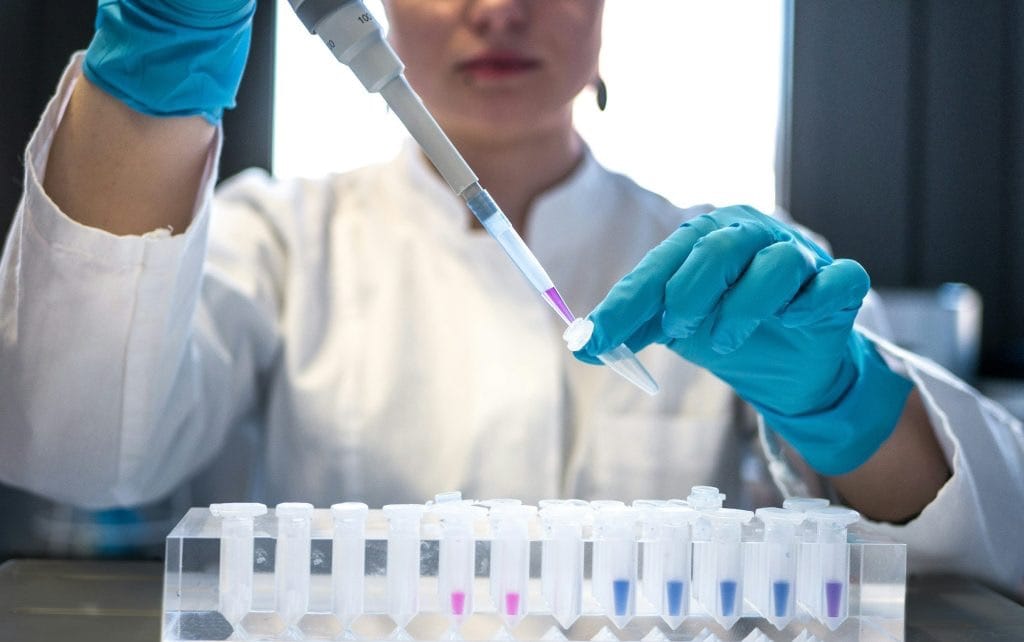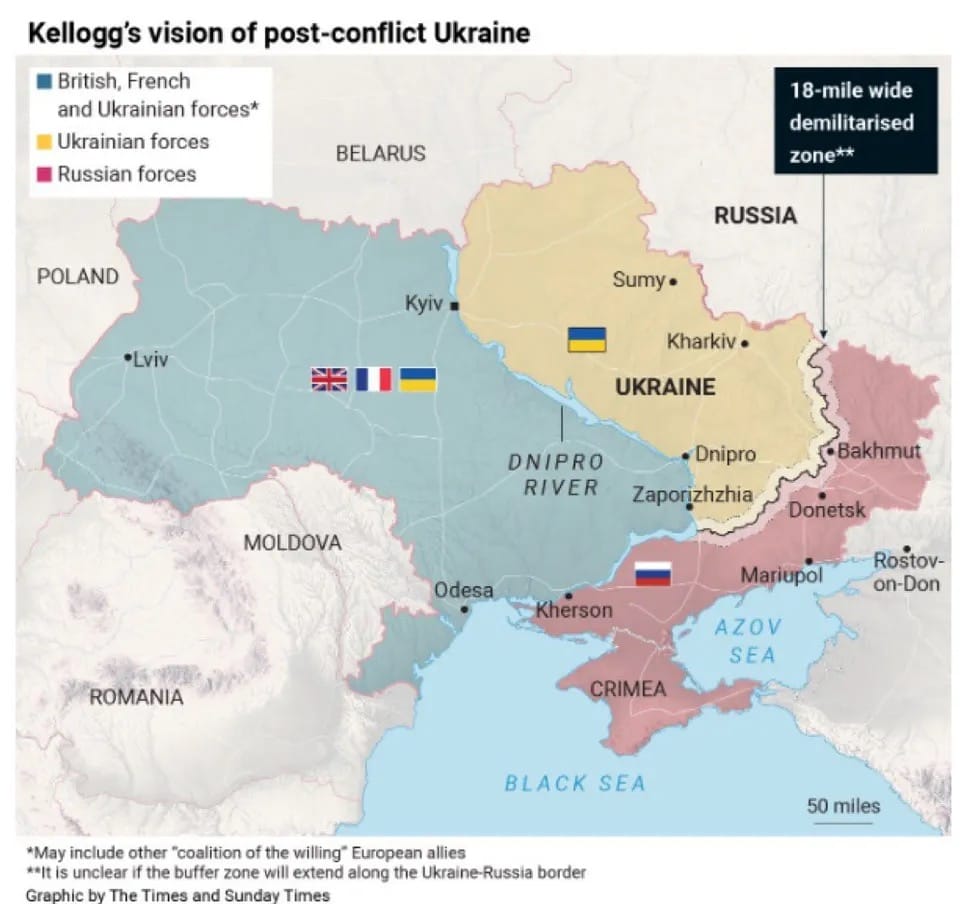April 18 2025
China’s biotech threat; Trump’s deportation defiance; Lilly’s obesity pill; Google, Meta antitrust; Battle for Eurasia

US Lead in Biotech Threatened by China’s Rise
Federal Judges Probe Trump Administration’s Defiance in Deportation Cases, Risking Constitutional Clash
Eli Lilly’s Obesity Pill Breakthrough Promises Scalable Diabetes and Weight-Loss Solution
Google and Meta Face Antitrust Reckoning, Risk Losing Core Assets in Landmark Rulings
Battle for Eurasia Update: U.S.-Ukraine Minerals Deal, Partition Map, Russian Demands, and Trump Threatens to Walk
GET THE CITIZEN JOURNAL APP - FREE!
1. US Lead in Biotech Threatened by China’s Rise
Americans are already familiar with how the Chinese government conducts economic warfare with crucial technologies such as semiconductors: corner the supply chain, then choke it to weaken the United States. But this is not the last time Beijing will run this play, and it is not even the most dangerous version of it. Imagine a not-so-distant future where researchers in Shanghai develop a breakthrough drug that can eliminate malignant cells, effectively ending cancer as we know it. But when tensions over Taiwan reach a breaking point, the Chinese Communist Party (CCP), the strategic apparatus of the Chinese government, hoards the treatment under the guise of national security, cutting off supply to the United States. After years of access, this lifesaving drug is immediately in shortage, requiring doctors to ration it while American biotechnology companies scramble to reconstitute production in the United States. The streets and social media overflow with people demanding that the United States abandon Taiwan. The Administration faces an agonizing choice between geopolitical priorities and public health. Based on two years of research and consultation with private and public experts, this report comes to a sobering, even frightening, conclusion: China is quickly ascending to biotechnology dominance, having made biotechnology a strategic priority for 20 years. To remain competitive, the United States must take swift action in the next three years. Otherwise, we risk falling behind, a setback from which we may never recover.
Source: US Senate
2. Federal Judges Probe Trump Administration’s Defiance in Deportation Cases, Risking Constitutional Clash
After the Trump administration rushed nearly 240 Central American immigrants onto charter planes last month and flew them — most without hearings — to a prison in El Salvador, the courts responded with a flurry of orders more or less instructing Trump officials to figure out a way to give them the due process they had been denied. But for much of the past few weeks, the White House has dodged, dragged its feet and found other ways to defy some of those orders. And that has led to a remarkable development. Two federal judges in Washington and Maryland handling cases arising from the deportation flights have now declared that they have reason to believe that Trump officials have acted in bad faith by failing to comply with their decrees. To get to the bottom of the obfuscation, the judges have made plans for searching inquiries into who in the administration may have been responsible. The threat of the investigations has come at an especially fraught moment: just as President Trump and his advisers are increasingly butting heads with the courts and are testing the traditional balance of power between the judicial and executive branches. The jurists’ dual moves have brought the two coequal parts of the government closer than ever to an open confrontation.
Source: NYT
3. Eli Lilly’s Obesity Pill Breakthrough Promises Scalable Diabetes and Weight-Loss Solution
Eli Lilly’s new obesity and diabetes pill has shown it can lower blood sugar and aid weight loss in a late-stage trial, sending shares in the US drugmaker up nearly 15 per cent in Wall Street trading. Orforglipron uses the same GLP-1 mechanism as weight-loss and diabetes injectables such as Novo Nordisk’s Wegovy and Ozempic and Eli Lilly’s Zepbound and Mounjaro. David Ricks, Eli Lilly’s chief executive, called it a “convenient once-daily pill”. While meeting demand for existing drugs has been challenging, Ricks said orforglipron could be quickly manufactured and “launched at scale” if it were approved by the regulator. The company expects to submit it for approval for weight-loss treatment later this year, and for diabetes in 2026.
Source: FT
4. Google and Meta Face Antitrust Reckoning, Risk Losing Core Assets in Landmark Rulings
Google and Meta grew into titans with well-timed acquisitions, booming ad businesses and products that changed how consumers use the internet. Now, each is facing unprecedented pressure for the tactics they used to grow. Google on Thursday lost its second antitrust case in eight months when a court ruled it has an illegal monopoly in parts of the ad industry. Current and former Meta executives, meanwhile, spent the week in court defending the company’s practices in the social-media market as part of a Federal Trade Commission trial. The cases could force Google and Meta to sell valuable pieces of the formidable empires they have built. For Alphabet’s Google, the federal ruling affects parts of its core advertising business, which makes up a tenth of its overall sales. The FTC seeks to force Meta to part ways with Instagram and messaging app WhatsApp.
Source: WSJ
5. Battle for Eurasia Update: U.S.-Ukraine Minerals Deal, Partition Map, Russian Demands, and Trump Threatens to Walk
Editors note: This ongoing conflict pits the West, led by the United States, against an axis of adversaries, including China, Russia, Iran, and North Korea. At stake is dominance over the vast and strategically critical landmass of Eurasia. The conflicts in Ukraine, the Middle East, and rising tensions with China in East Asia are all interconnected, forming part of a larger struggle: the Battle for Eurasia. To dive deeper into my framework for understanding the Battle for Eurasia, see my article.
A. Ukraine and the United States signed a memorandum of understanding late on Thursday as a “step toward a joint economic partnership agreement,” according to Ukraine’s economy minister, bringing both sides closer to a minerals deal that has gone through multiple, contentious rounds of negotiations.
B. Four days ago, US Special Envoy Keith Kellogg suggested to the UK Times that Ukraine could be divided in a post-war settlement akin to what was done to Germany after WW2. A handy map was shared (see below) to illustrate such a proposal.

The map allows for the Russians to maintain control over the land that they have captured, buffered by a very wide de-militarized zone that reflects the power of new drone technology made available during this conflict. The most interesting part is the stationing of French and British forces to the west of the Dnieper River. Kellogg argues that this shouldn’t be viewed as provocative by the Russians, as it would not be a NATO force. The fact of the matter is that this would be NATO-by-Stealth, precisely the thing that caused the Russians to invade Ukraine in the first place. Kellogg is telling the Russians that NATO will now move its border eastwards to the Dnieper River, and that the Russians can have the 18% of Ukraine that they occupy as a consolation prize. This war has been fought to determine the new border between Russia and the US Empire. As I’ve written here in the past, this conflict is now one of diminishing returns for the Americans, especially considering the fact that they want to move their primary focus to East Asia. That cannot be done without a settlement in Ukraine.
Editors note: this proposal will be DOA but concedes what everybody knew but didn’t say: Russia is going to keep the territory they conquered
C. Two high-ranking members of Russian President Vladimir Putin's inner circle reiterated Putin's June 2024 non-negotiable demands that any resolution of the war in Ukraine must result in regime change, extensive territorial concessions, and long-term limitations on Ukraine's military after US Special Envoy for the Middle East Steve Witkoff's April 11 meeting with Putin.
D. Donald Trump is ready to walk away from trying to negotiate a Russia-Ukraine peace deal within days unless progress is made, a top US official has warned. If the president doesn't see signs that an agreement is on the horizon he will call it a day because he has 'other priorities' to focus on, US Secretary of State Marco Rubio said on Friday.
Editors note: Russia is winning the war and on track to gradually capture more territory. If the US is happy, it’d be the first time in history that the losing side was happy with a post-war settlement. If we want peace, we aren’t going to like the deal.
Source: NYT, Substack, ISW, Daily Mail
April 18, 1775: Revere and Dawes warn of British attack
On April 18, 1775, British troops march out of Boston on a mission to confiscate the American arsenal at Concord and to capture Patriot leaders Samuel Adams and John Hancock, known to be hiding at Lexington. As the British departed, Boston Patriots Paul Revere and William Dawes set out on horseback from the city to warn Adams and Hancock and rouse the Minutemen. About 5 a.m. on April 19, 700 British troops under Major John Pitcairn arrived at the town to find a 77-man-strong colonial militia under Captain John Parker waiting for them on Lexington’s common green. Pitcairn ordered the outnumbered Patriots to disperse, and after a moment’s hesitation, the Americans began to drift off the green. Suddenly, the “shot heard around the world” was fired from an undetermined gun, and a cloud of musket smoke soon covered the green. When the brief Battle of Lexington ended, a handful of Americans lay dead and several others wounded.
The American Revolution had begun.
SUBSCRIBE ONLINE TO GET THE US CITIZEN JOURNAL IN YOUR INBOX - FREE!
See the Ad Astra Podcast! Released on Apple and Spotify around 10a CST.
Sponsors (click me!)





Sources
- https://www.biotech.senate.gov/final-report/chapters/executive-summary/ (Biotech Senate)
- https://www.nytimes.com/2025/04/17/us/politics/trump-el-salvador-deportations-immigrants.html (NYT)
- https://www.ft.com/content/1de938b9-2cb5-4fa2-8612-5f930a65f7a2 (FT)
- https://www.wsj.com/tech/google-meta-antitrust-trials-4fc7191e?mod=hp_lead_pos3 (WSJ)
- https://www.nytimes.com/2025/04/17/world/europe/ukraine-us-minerals-agreement.html (NYT)
- https://open.substack.com/pub/niccolo/p/the-kellogg-map-as-a-proposal-for?r=d9vo5&utm_medium=ios (Substack)
- https://www.understandingwar.org/backgrounder/russian-offensive-campaign-assessment-april-15-2025 (ISW)
- https://mol.im/a/14624833 (Daily Mail)
